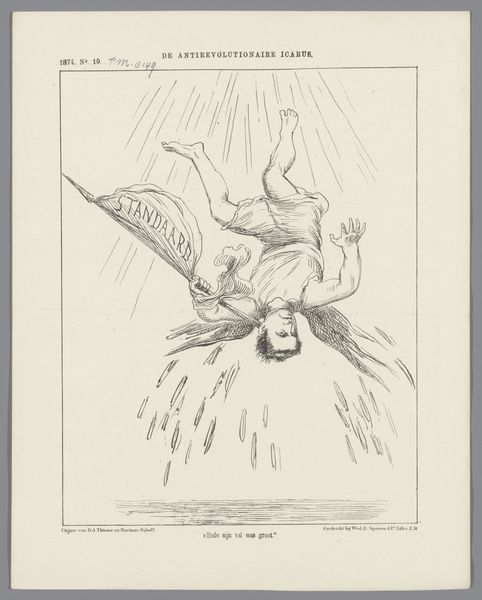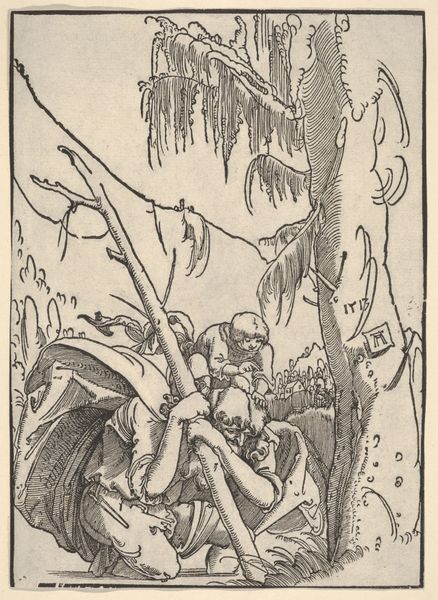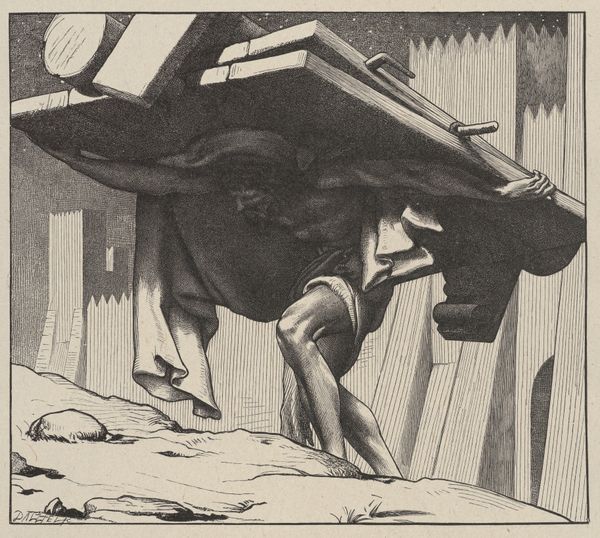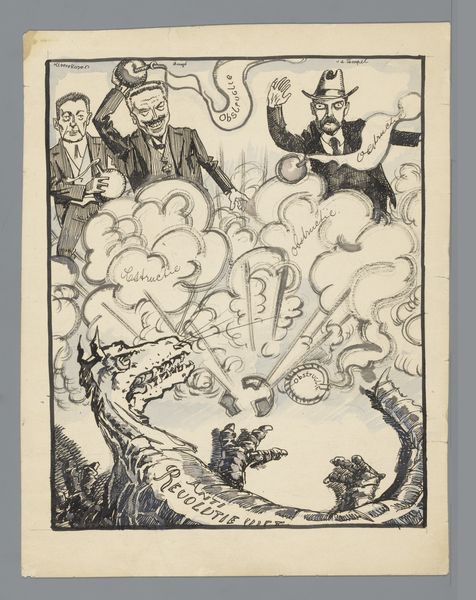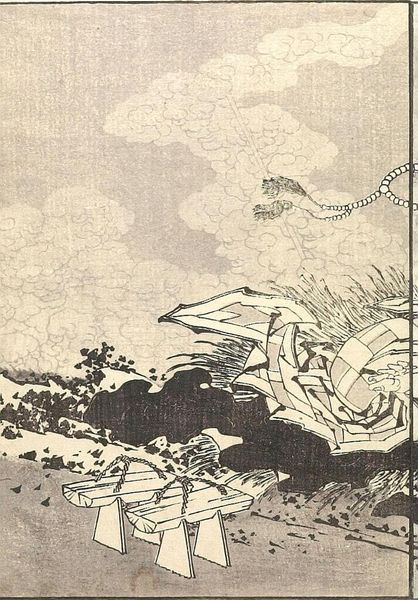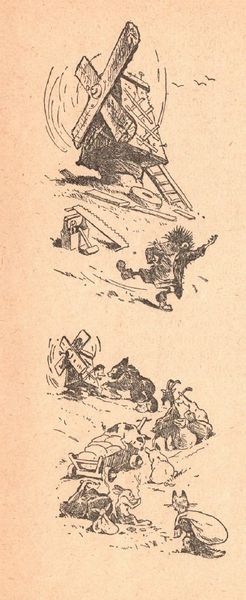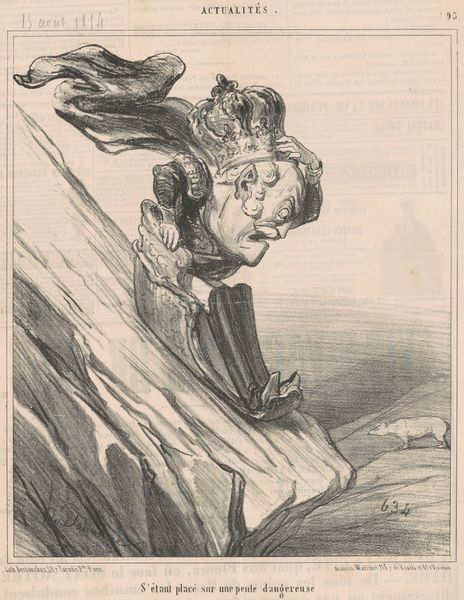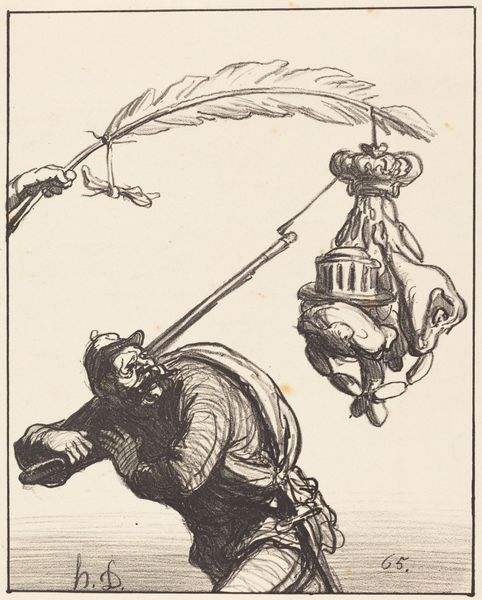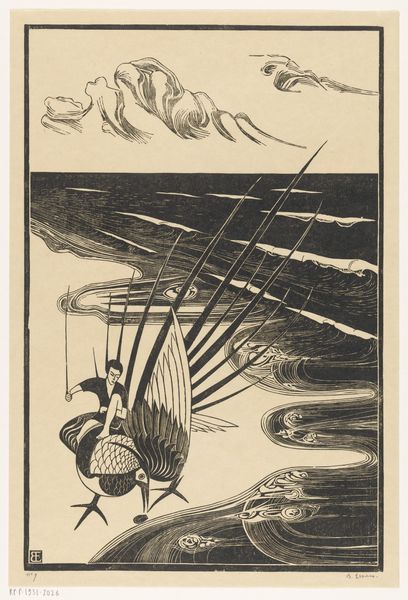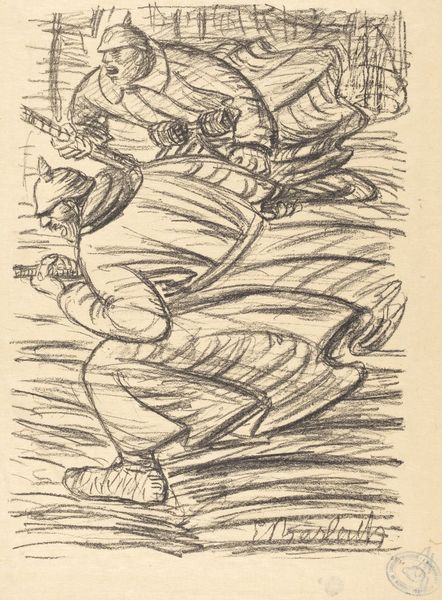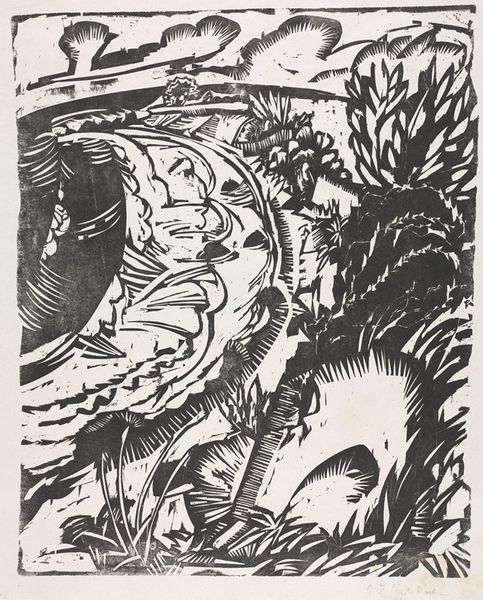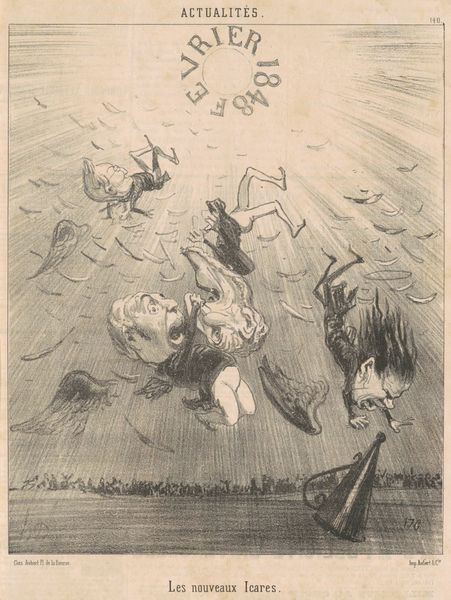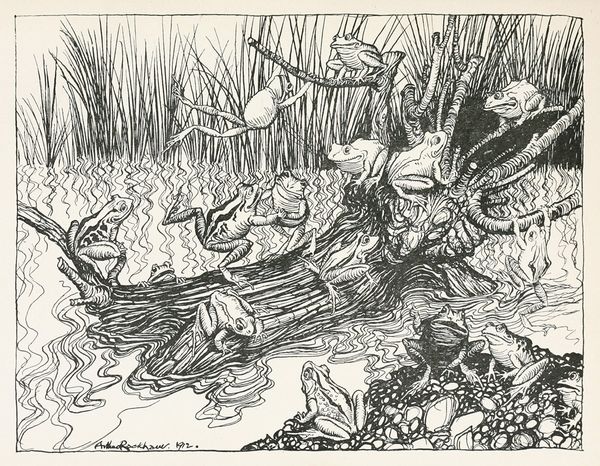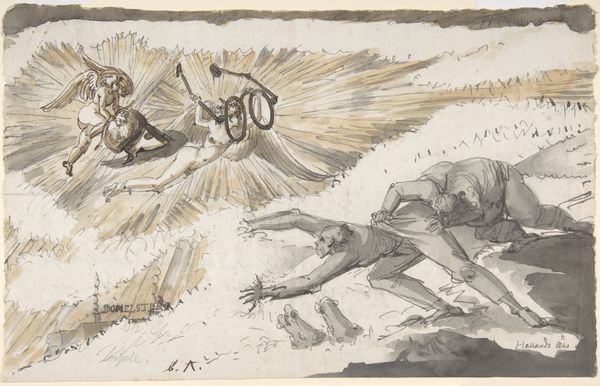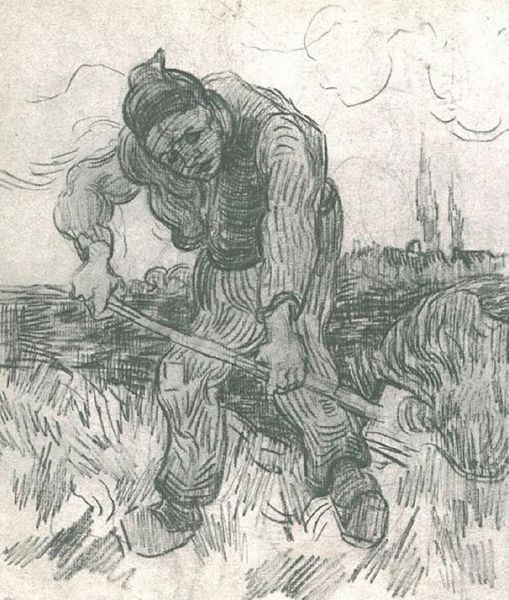
drawing, coloured-pencil, print, paper, pencil
#
drawing
#
coloured-pencil
#
narrative-art
# print
#
war
#
landscape
#
figuration
#
paper
#
coloured pencil
#
soldier
#
pencil
#
horse
#
men
#
sketchbook drawing
#
history-painting
#
realism
Dimensions: Sheet: 4 1/8 x 2 3/8 in. (10.4 x 6.1 cm)
Copyright: Public Domain
Curator: This drawing by Winslow Homer, created in 1864 and titled "Life in Camp, Part 1: Water Call", provides a glimpse into the everyday life of soldiers during the American Civil War. Homer used pencil and coloured pencil on paper for this work, now residing at the Metropolitan Museum of Art. Editor: My first impression is a sense of chaos mingled with humor. The soldier's unexpected tumble from his horse creates a rather awkward, yet arresting image against an otherwise quiet scene. Curator: Indeed, Homer's approach diverges from traditional war art. Rather than focusing on heroic battles, he depicts the more mundane realities of camp life, highlighting moments of both humor and discomfort experienced by the Union soldiers. This piece particularly speaks to how public imagery of war started incorporating realism. Editor: The tumbling soldier dominates the scene. It almost reminds me of a tarot card reversal, where a figure's imbalance prompts reassessment. What does it signify, I wonder, that his world has turned upside down in this casual moment of camp life? Curator: Well, we see, even at what looks like the Union camp, these images have been filtered and disseminated through a selective process that serves the political agenda and dominant narratives surrounding the war. Remember that many such images served to promote patriotism. Editor: I also see the presence of the horse—a creature frequently seen as representing vitality. But in this image, the animal and rider are inverted; so is Homer hinting at a vulnerability and inversion of the era's virile ideals? Curator: It's quite a compelling theory. Such a contrast challenges the romanticised, heroic vision of war. That notion, together with images selected, curated, displayed in prominent locations contribute to the power of shaping our understanding of conflicts. Editor: Ultimately, “Water Call” resonates because of its simple complexity: Homer chose an otherwise overlooked moment, revealing the symbolic weight in even the most banal situations. Curator: A wonderful insight. By choosing ordinary moments to immortalize on paper, the drawing has gained significant cultural and political meaning.
Comments
No comments
Be the first to comment and join the conversation on the ultimate creative platform.
